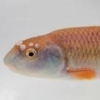Most Current Classifications
#1
 Guest_Andi_*
Guest_Andi_*
Posted 21 November 2007 - 12:51 PM
What I'm wondering is where is the holy grail on the most updated list of ichthyological classifications?
#2
 Guest_AC-Editor_*
Guest_AC-Editor_*
Posted 21 November 2007 - 01:20 PM
Being interested in fish for many years I've discovered, as I'm sure all of you have, that the scientific classifications of fish change. It's one of the reasons I don't bother investing in books much any more. I can't tell you how many times the names are obsolete on half the fish within a few years!
What I'm wondering is where is the holy grail on the most updated list of ichthyological classifications?
Classifications will continue to change as interrelationships between taxa are more fully investigated. And it's not just fish classifications that change. It was once well-established that dinosaurs were reptiles. Now it seems like it's fourth-grade knowledge that they're birds, or at last occupying the same evolutionary branch as birds.
For higher level classifications of all life forms, the "Holy Grail" is the Tree of Life website http://www.tolweb.org .
For higher level (family and above) fish classifications, it's Joseph Nelson's book FISHES OF THE WORLD (http://members.shaw....shesoftheworld/ ). It's expensive, but most university libraries have it.
For North American fishes, you'll find the most up-to-date names at http://www.nanfa.org/checklist and in the 4-part Annotated Checklist series published in American Currents (the 3rd of 4 parts has just been sent to the press and will mail to NANFA members soon).
Hope this helps.
Chris Scharpf
NANFA
#3
 Guest_Andi_*
Guest_Andi_*
Posted 21 November 2007 - 01:32 PM
#4
 Guest_AC-Editor_*
Guest_AC-Editor_*
Posted 21 November 2007 - 03:43 PM
Thank-you so much! Whom is the body that determines classification changes in fishes?
There is no governing "body" of fish classification. Please know that classificiation is a hypothesis, as opposed to an immutable fact. These hypotheses are presented in scientific papers, which are (ideally) peer-reviewed before publication to make sure that the science is sound and the conclusions logically derived from the evidence. Proposed classifications become "accepted" when other fish taxonomists and systematists use them in their publications. But these classifications are always subject to change when new evidence -- particularly genetic evidence -- come to light.
The aforementioned book FISHES OF THE WORLD comes close to being a final arbiter on which classification is the most widely accepted, although that is not its intention. But it's a great starting point and provides a great synthesis of the state of the art in higher level fish classification. It's fascinating to see how fish classificiations have changed over the 4 editions of the book since 1976.
Chris Scharpf
#5
 Guest_teleost_*
Guest_teleost_*
Posted 21 November 2007 - 04:05 PM
Are fishes receiving classification that are unable to be differentiated without genetic testing?
#6

Posted 21 November 2007 - 04:14 PM
Now I have to go looking for that paper again...
Have any North American freshwater fishes been described recently without a preponderance of genetic evidence?
Are fishes receiving classification that are unable to be differentiated without genetic testing?
#7
 Guest_daveneely_*
Guest_daveneely_*
Posted 21 November 2007 - 04:23 PM
Have any North American freshwater fishes been described recently without a preponderance of genetic evidence?
Are fishes receiving classification that are unable to be differentiated without genetic testing?
Yes for both accounts.
While genetic data is nice, it's not necessary; when it's been added to most recent papers it's mostly been to identify relationships with other congeners. The idea that something has to be "so-and-so" distinct from other populations to be a "good" species is fundamentally flawed.
Jacob Egge and Andrew Simons (University of Minnesota) recently described the Noturus albater form from the Black and St. Francis rivers of Arkansas and Missouri based entirely on genetic and chromosomal evidence; they were not able to consistently identify morphological characters that were diagnostic. As far as I know, this is the first time this has been done for North American fishes (although it's common practice in salamanders and other taxa).
Egge, J.J.D. & Simons, A.M. (2006). The challenge of truly cryptic diversity: diagnosis and
description of a new madtom catfish (Ictaluridae: Noturus). Zoologica Scripta, 35, 581–595.
doi:10.1111/j.1463-6409.2006.00247.x
#8
 Guest_NateTessler13_*
Guest_NateTessler13_*
Posted 04 December 2007 - 02:17 PM
As far as I know, this is the first time this has been done for North American fishes (although it's common practice in salamanders and other taxa).
What about in the case of the Roseyface Shiner (N. rubellus) and the Carmine Shiner (N. percobromus)? I believe that is something of the same matter.
1 user(s) are reading this topic
0 members, 1 guests, 0 anonymous users









